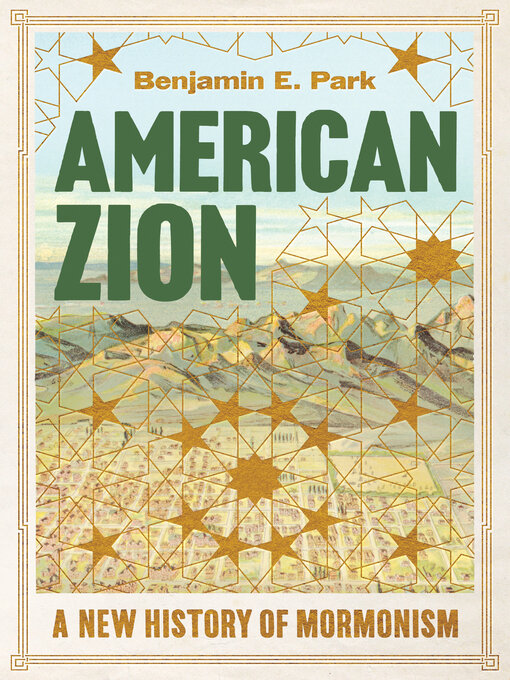New Yorker — "The Best Books We've Read in 2024 So Far"
The first major history of Mormonism in a decade, drawing on newly available sources to reveal a profoundly divided faith that has nevertheless shaped the nation.
Drawing on sources that have become available only in the last two decades, Park presents a fresh, sweeping account of the Latter-day Saints: from the flight to Utah Territory in 1847 to the public renunciation of polygamy in 1890; from the Mormon leadership's forging of an alliance with the Republican Party in the wake of the New Deal to the "Mormon moment" of 2012, which saw the premiere of The Book of Mormon musical and the presidential candidacy of Mitt Romney; and beyond. In the twentieth century, Park shows, Mormons began to move ever closer to the center of American life, shaping culture, politics, and law along the way.
But Park's epic isn't rooted in triumphalism. It turns out that the image of complete obedience to a single, earthly prophet—an image spread by Mormons and non-Mormons alike—is misleading. In fact, Mormonism has always been defined by internal conflict. Joseph Smith's wife, Emma, inaugurated a legacy of feminist agitation over gender roles. Black believers petitioned for belonging even after a racial policy was instituted in the 1850s that barred them from priesthood ordination and temple ordinances (a restriction that remained in place until 1978). Indigenous and Hispanic saints—the latter represent a large portion of new converts today—have likewise labored to exist within a community that long called them "Lamanites," a term that reflected White-centered theologies. Today, battles over sexuality and gender have riven the Church anew, as gay and trans saints have launched their own fight for acceptance.
A definitive, character-driven work of history, American Zion is essential to any understanding of the Mormon past, present, and future. But its lessons extend beyond the faith: as Park puts it, the Mormon story is the American story.


